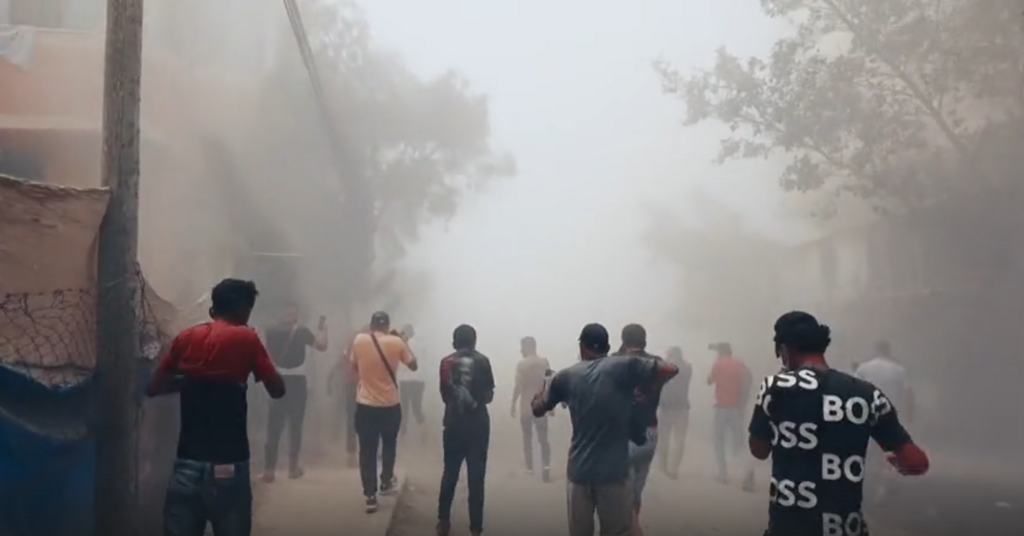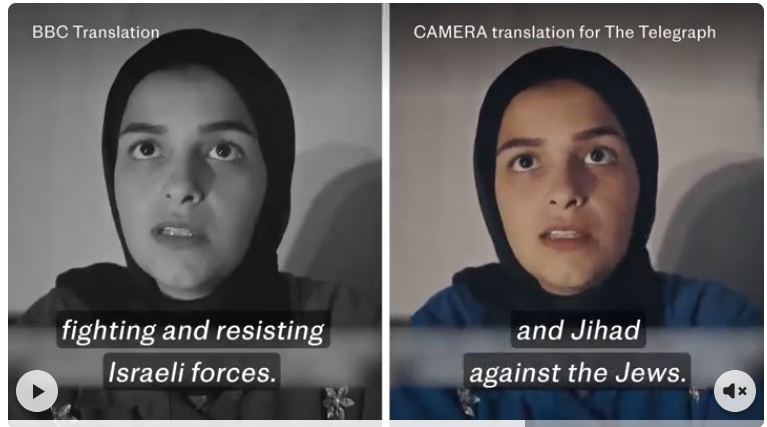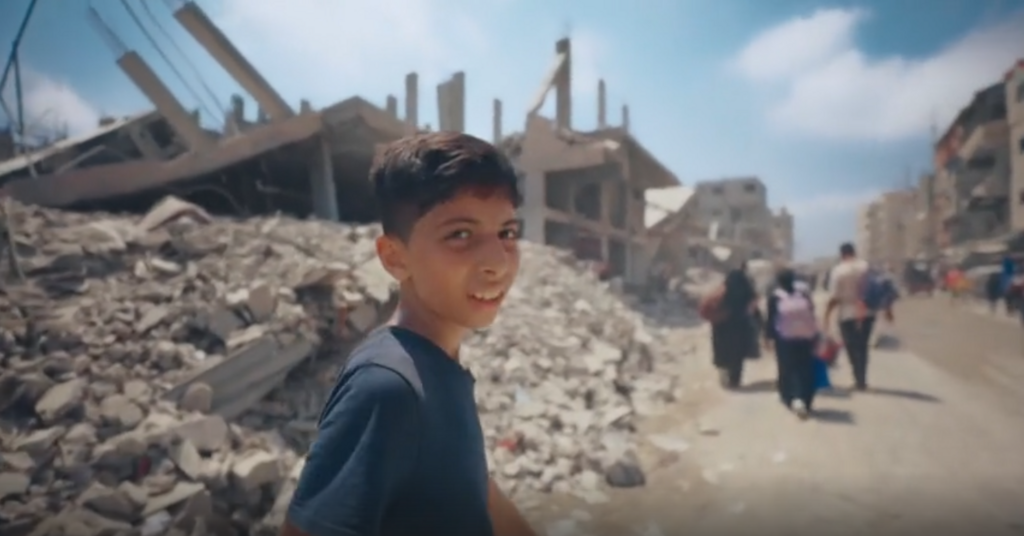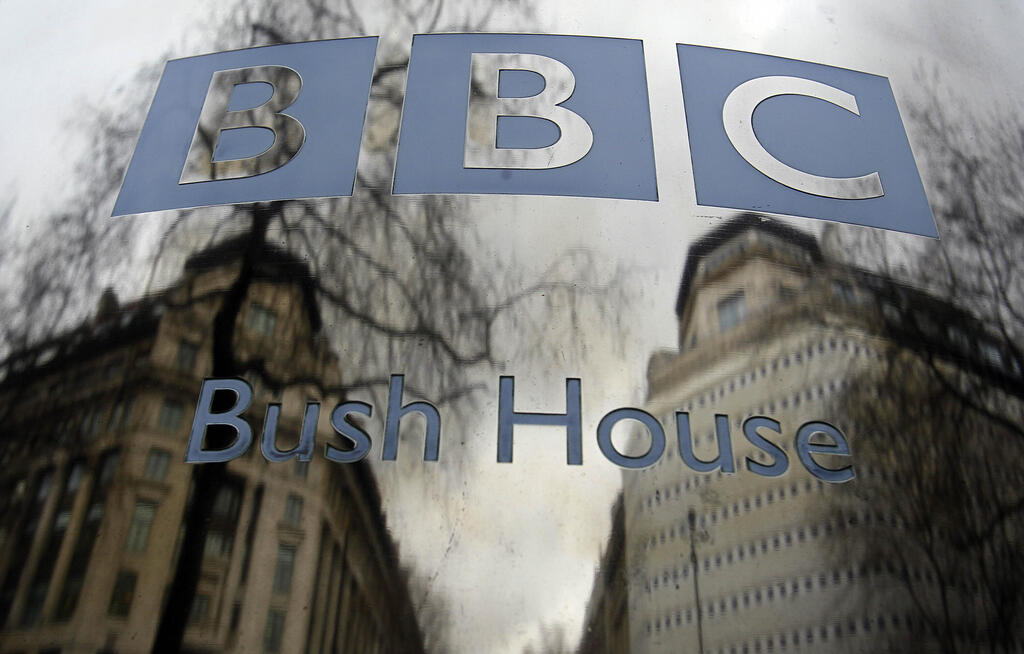The idea that London is not waiting for us has long been understood, but many still believed—just as Israeli playwright Hanoch Levin once wrote—that at least British television, particularly its news channels, remained among the most reliable in the world.
Yet, as time passes, it has become increasingly clear that the BBC is no longer a model of exemplary journalism—especially when covering the October 7 Hamas attack and the ongoing war in Gaza.
The already tense relationship between the BBC, Israel and the UK’s Jewish community hit a new low this week following widespread complaints about the documentary Gaza: How to Survive a War Zone?, which led to its removal from the network’s platform.
The controversy erupted after it was revealed that the film’s main subject, 13-year-old Abdullah Al-Yazouri, is the son of Hamas’ deputy agriculture minister in Gaza—something the filmmakers failed to disclose. Additionally, one of the documentary’s cameramen, Hatem Rawagh, was found to have posted messages praising the October 7 massacre and other terrorist attacks.
Further scrutiny uncovered that translations in the documentary had been altered to soften certain statements. Phrases such as "jihad against the Jews" were rendered as "war against Israeli forces"—a deliberate change that critics say misrepresented the original intent.
Now, British Jewish politicians and media figures are questioning how much of the production’s £400,000 budget came from public funds—and, more importantly, how the BBC, one of the world's most respected news organizations, can maintain credibility amid mounting accusations of bias since the war in Gaza began.
On Thursday night, the BBC issued an apology, saying it had no plans to rebroadcast the documentary or make it available for replay in its current form. A BBC spokesperson admitted that "serious flaws" were found in the film, adding that the BBC and the film’s producers made "unacceptable mistakes" and take full responsibility for both the errors and the damage to the corporation’s reputation.
However, even accountability appears to have its limits. "During filming, the production company was repeatedly asked in writing about possible links between the boy’s family and Hamas," the BBC explained. "They have since admitted that they were aware of Abdullah Al-Yazouri’s family ties to Hamas but failed to inform us. It is our fault that we did not uncover the truth before the film aired."
The BBC has promised a thorough review of the documentary’s production process, including its budget, "to ensure that no organization or individual with ties to Hamas was compensated or received gifts in exchange for participation."
The latest controversy surrounding the BBC is just the tip of the iceberg. In September 2024, The Telegraph published a report analyzing the first four months of the war and how it was covered across the BBC’s television and radio networks, news websites, podcasts and social media platforms.
The report was commissioned by British-Israeli lawyer Trevor Asserson and compiled by a team of 20 lawyers and data analysts using artificial intelligence. The findings identified 1,553 violations of the BBC’s own editorial guidelines, including inaccuracies, biased wording and editing and omissions of public-interest information.
According to the report, "The BBC portrayed Hamas as a terrorist entity far less frequently than it characterized Israel as a militaristic and aggressive state." The analysis found that Israel was accused of committing crimes four times more than Hamas (127 mentions compared to 30), was described as carrying out "genocide" 14 times more often (283 mentions compared to 19), and was six times more likely to be labeled as violating international law (167 mentions compared to 27). This period coincided with South Africa’s case against Israel at the International Court of Justice in The Hague.
Get the Ynetnews app on your smartphone: Google Play: https://bit.ly/4eJ37pE | Apple App Store: https://bit.ly/3ZL7iNv
The BBC responded that it would "carefully consider the report," which was submitted to the network’s leadership and board of directors. A BBC spokesperson acknowledged that the document "raises serious questions about reporting methods." However, despite these admissions, there has been little indication that the network’s approach has changed.
In early October 2024, 100 BBC employees signed a petition to the network’s director-general, claiming that the BBC’s coverage was biased in favor of Israel. The corporation again responded by saying it receives an almost equal number of complaints alleging bias both for and against Israel. "This does not mean we assume everything we do is always right. We listen to all criticism, both internal and external, and we strive to improve," the network stated at the time.
This response mirrors the BBC’s current handling of the Gaza documentary scandal—adopting a defensive stance that implies, "If both sides are complaining, we must be doing something right." In its announcement regarding the removal of Gaza: How to Survive a War Zone? from its platform, a BBC spokesperson acknowledged that "mistakes have indeed been made over the past 18 months, with both sides accusing us of bias despite our insistence that such errors are an inevitable part of covering a fast-moving and complex conflict." He added, "It is unclear what conclusions can be drawn from these complaint statistics."
Or, to put it less diplomatically: the BBC seems more focused on the number of complaints than the severity of its mistakes.
Just how significant are these errors? A review of the BBC’s official corrections and retractions page reveals that since October 7, the network has issued 60 corrections, 15 of them related to the war in Gaza. In nine cases, the BBC had to retract false or misleading information about Israel. Five corrections involved inaccurate reporting on the Palestinian side, while one involved an error affecting both sides.
The complaints from Gaza-related sources included disputes over the reported number of Israelis killed by Hamas on October 7 ("1,200 rather than the initially reported 1,300"), and a misrepresentation in a video of an attack on Maccabi Tel Aviv fans in Amsterdam ("The videographer initially claimed it was an attack by Israeli fans on a Dutch citizen, whereas it first appeared to depict an attack on the Israeli fans"). Another complaint involved BBC coverage describing only "a few" Hamas supporters at a protest, when in reality, the crowd consisted of "thousands of pro-Palestinian demonstrators."
When it comes to BBC coverage of Israel, some of the network’s most controversial missteps remain hard to forget.
6 View gallery


The Palestinian Islamic Jihad rocket impact site at Al-Ahli Hospital in Gaza
(Photo: REUTERS/Mohammed Al-Masri)
One of the most glaring errors came from BBC correspondent Jon Donnison, who reported on the October 17, 2023, explosion at al-Ahli Hospital in Gaza. His initial reporting suggested an Israeli airstrike had killed hundreds of Palestinians—an allegation widely spread before it was later proven to be the result of a failed rocket launch by Palestinian Islamic Jihad, with a significantly lower casualty count than originally claimed. The BBC later "clarified" the report, insisting that Donnison had never directly stated it was an Israeli attack but that "the situation remained unclear."
Another correction followed a November 15, 2023, report, which falsely claimed that Israeli forces targeted Arabic-speaking medical staff during a raid on a Gaza hospital. In reality, the IDF had brought in Arabic-speaking personnel and medical teams to communicate with hospital staff and patients. The BBC later apologized, stating that "the correct version was published minutes later and an on-air apology was issued." However, critics noted that the correction failed to include an explicit acknowledgment of what actually happened.
Other controversial BBC corrections included labeling a protest against the screening of a documentary on the Nova festival massacre as a "pro-Palestinian vigil," and inaccurately reporting that "12 people were killed in an Israeli attack on the occupied Golan Heights"—when, in reality, Hezbollah rockets struck a soccer field in Majdal Shams on July 27, 2024, killing 12 children and injuring 34 others.
The BBC also made headlines when one of its reporters questioned former IDF spokesperson Jonathan Conricus after Israel’s hostage rescue operation in Nuseirat on June 8, 2024, asking, "Did Israel notify the Palestinians before carrying out the raid?" Conricus responded with dry British humor: "One cannot expect Israel to provide a heads-up before a hostage rescue operation—because then the terrorists would execute the hostages, and the mission would fail."
6 View gallery


The soccer field in Majdal Shams after the killing of 12 children by Hezbollah rocket fire
(Photo: ZAKA)
Beyond editorial missteps, concerns have also been raised about workplace culture at the BBC. In November 2024, BBC employees were encouraged to wear "Palestinian flag colors or a keffiyeh" as part of a day supporting "an end to the war in Gaza and the release of hostages." While the initiative at least acknowledged the hostages held in Gaza, there was no mention of wearing yellow—the color symbolizing their plight.
The call to participate came from the Trades Union Congress (TUC), the UK’s national trade union center. However, The Times reported that the National Union of Journalists (NUJ) feared that such political activism could undermine the BBC’s credibility by aligning it with the Palestinian cause. The event also left Jewish BBC employees feeling uncomfortable and even threatened.
A deeper issue in the BBC’s Gaza coverage is the reliance on local journalists with questionable affiliations. While international media outlets criticize Israel for restricting foreign press access to Gaza, the BBC—like many global networks—fails to enforce basic journalistic standards for its Gaza-based correspondents. Many of these reporters openly support Hamas or lack the editorial freedom expected in Western journalism—something news organizations are fully aware of.
In March 2024, the BBC aired a report alleging that Israeli forces had tortured hospital staff in Khan Younis. A later Daily Mail investigation revealed that six of the eight doctors interviewed for the piece were known Hamas supporters who had previously shared antisemitic posts online. Worse still, some BBC journalists covering Gaza had themselves posted similar content.
Perhaps London is no longer as comfortable as it once was—but more troublingly, British television is no longer what it used to be either.





